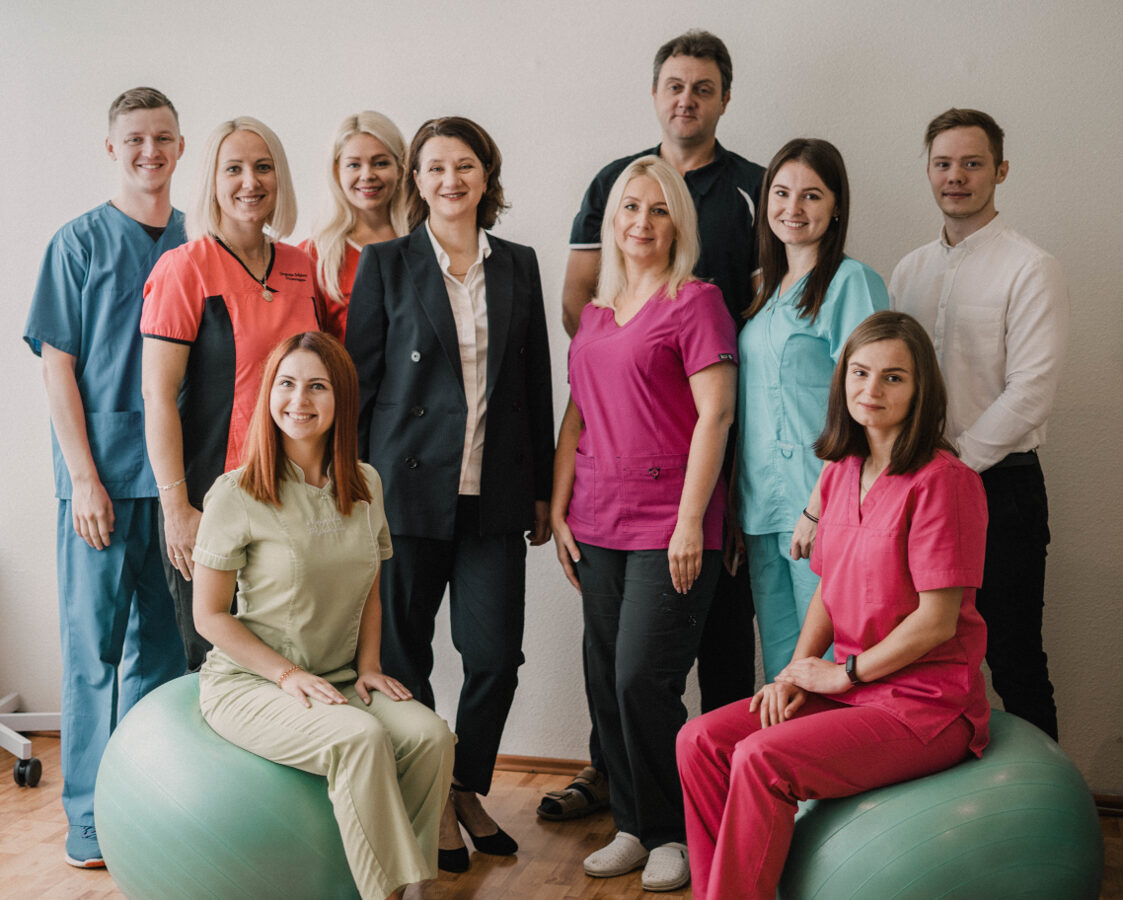About us
A bit of history
- All employees of SIA Neiroprakse are constantly improving and improving their knowledge and qualifications, regularly attending courses, conferences and seminars to stay up-to-date on the latest treatment methods and options.
- Professional, competent and friendly staff of Neiroprakse Ltd. will help you in any situation to find the answer and solution of your problem.
- Patients with disabilities are welcomed on the 1st floor or use a lift with prior notice to the staff.
- Neuroprakse Ltd., a neurology practice, was established in 2005 under the leadership of Inga Lavrenova.
- 1991 I.Lavrenova is a graduate of the Medical Academy in Riga. From 1991 to 1993 he specialized in Riga Seventh Clinical Hospital under the guidance of Dr. G.Enina, V.Spector, M.Metra.
- The first permanent job for I.Lavrenova was Daugavpils Griva District Hospital and Outpatient Clinic, where she practiced as a neurologist and therapist.
- 1997 I. Lavrenova worked at Daugavpils Regional Hospital, Department of Neurology under the guidance of Dr. L.Sparāne.
- As of 2010 Neurology practice at Liepājas Street 2 in Daugavpils I.Lavrenova becomes the main workplace, but I.Lavrenova does not leave Daugavpils Regional Hospital, but continues to work as a neurologist on duty.
- 2006 I.Lavrenova at Pauls Stradiņš Hospital acquires the position of Electroencephalogram specialist and obtains a certificate. performs electroencephalogram (EEG) outpatient examinations.
- 2013 I Lavrenova certified as a Algologist (pain treatment specialist).
- 2012 a contract was concluded with the National Health Service for the provision of home rehabilitation services. At the moment the services are provided by 4 physiotherapists of SIA Neiroprakse.
- 2016 an outpatient physiotherapy room was opened.
- 2021 Neiroprakse moved to own building at Krāslavas 59.
- Since 2023 state-funded (free for the patient) physiotherapy is available for patients with oncological diseases.
- 2023 Neiroprakse opened modern mini-hotel rooms on the second floor, for patients and regular
customers. Rooms are accessible for people with movement impairments.


